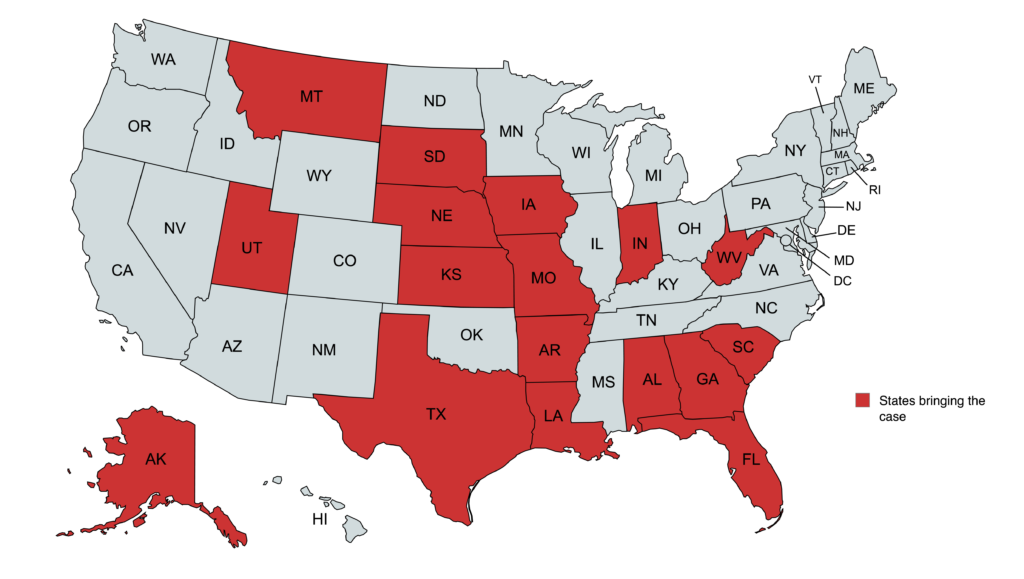1 in every 4 or 5 people in the US has a disability.
People with disabilities come from every walk of life. We are your neighbors, coworkers, classmates, and loved ones, and for more than 50 years, our rights have been recognized and protected under federal law. Those rights ensure that we can live, work, learn, and thrive without discrimination, but now, those rights are under threat. We must defend them, together. Because when one person’s rights are at risk, all people’s rights are at risk.
Tell your state what 504 means to you.

What is 504?
Section 504 of the Rehabilitation Act of 1973 is a landmark civil rights law that makes it illegal for a business, organization, or other group to discriminate against people with disabilities if it receives funding from the federal government. It is 504 and its regulations that give us equal access to education, healthcare, employment, transportation, and more. Section 504 laid the foundation for the Americans with Disabilities Act (ADA) and the Olmstead Decision of 1999. Without 504, we will lose the protections that allow us to live our lives in the community.
What is Texas v. Becerra?
Texas v. Becerra is a lawsuit asking the court to rule Section 504 unconstitutional and get rid of its regulations and the requirement to provide people with disability services in their homes. If successful, this case would gut key disability rights protections and end the promise of community living for Americans with disabilities. The stakes are high for disabled individuals and families nationwide.
Fact Check:
The 17 states say that Texas v. Becerra will not effect special education and other disability services.
This is false. The states have not updated the lawsuit — it still asks the court to eliminate Section 504 entirely. That will affect all people with disabilities.
Which states are part of Texas v. Becerra?

17 states have joined the lawsuit:
- Alaska
- Alabama
- Arkansas
- Florida
- Georgia
- Indiana
- Iowa
- Kansas
- Louisiana
- Missouri
- Montana
- Nebraska
- South Carolina
- South Dakota
- Texas
- Utah
- West Virginia
Be Heard
What can we do to defend 504? Use your voice. Whether you’re directly effected by Section 504 or support disability rights, now is the time to take action!
Share Your Story
Stories change minds. If Section 504 has helped you access healthcare, housing, community living, or public spaces, your experience can make a difference. Show what’s at stake.
Use the hashtag #iAM504 and tag our social media channels (@save.504) to help amplify your voice and connect with others in the movement. Your story matters—let it be heard.
Contact Your Officials
Tell your elected officials that protecting disability rights matters. Urge your state and local representatives, governor, and state attorney general to act now.
If your state is one of the 17, call and email often. Tell them how important Section 504 is and ask them to withdraw from the lawsuit or change it to remove all requests related to eliminating Section 504, its regulations, and the mandate to provide services in the “most integrated setting”.
If you do not live in one of the 17 states, you can still take action. Urge them to stand against efforts to weaken Section 504. Your Attorney General can submit an amicus brief to the court in support of Section 504 and its critical service to civil rights for people with disability.
How do I find my elected officials?
What do I say?
The Disability Rights Education & Defense Fund has tips for what to put in a letter or email, and what to say when you call your elected officials. You will need to scroll down further on their page for this information.
